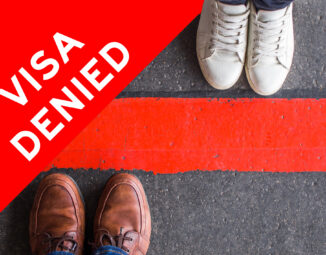Employer Alert – The Fiscal Year 2019 H-1B Visa Season is Almost Here
Employers who hire foreign workers may already be familiar with U.S. Citizenship and Immigration Services (USCIS), the government agency that oversees lawful immigration to the United States. USCIS is also responsible for determining which foreign workers will be approved for the highly coveted H-1B skilled worker visa. Among all categories of temporary working visas, the H-1B is the most common. However, in the past decade, H-1B visas have become increasingly difficult to obtain because of the strict annual cap on the number of visas issued.
Employers intending to hire foreign workers with highly specialized knowledge (in fields including science, engineering and information technology) and who are not already authorized to work in the US on an existing H-1B or other visa, should mark their calendars for April 2, 2018. On that date, USCIS will start accepting applications for H-1B visas, which have an annual cap of 85,000. Within that cap, up to 65,000 visas are available for foreign workers with a bachelor’s degree or higher (the “regular cap”), and 20,000 are available for foreign workers with a master’s degree or higher (the “advanced degree exemption”).
USCIS is required to accept H-1B cap petitions for a minimum of five business days. If USCIS receives more petitions than available under the cap, it will stop accepting petitions at the end of the fifth business day after April 2nd. After the petition window closes, USCIS uses a computer-generated random selection process to select petitions for adjudication. In 2017, H1-B applications reached the mandatory cap a mere five days after USCIS started to accept applications – and almost 200,000 petitions were received in total. Employers who want the best chance of obtaining an H-1B visa on behalf of their foreign workers should submit their application to USCIS promptly on April 2nd, and no later than April 6th.
To minimize the risk of missing these upcoming deadlines, employers who intend to hire potential foreign temporary workers should prepare for the upcoming lottery season now by finalizing job offers for H-1B employees and start to prepare Labor Condition Applications (LCAs) for workers they intend to sponsor. In addition, as previously covered by HR Legalist, USCIS considers some visa petitions to be exempt from the annual cap. HR Legalist encourages employers with questions about the H-1B visa process and other ways to legally employ foreign workers, to contact an immigration attorney for advice specific to their specific needs.
The information contained in this publication should not be construed as legal advice, is not a substitute for legal counsel, and should not be relied on as such. For legal advice or answers to specific questions, please contact one of our attorneys.



